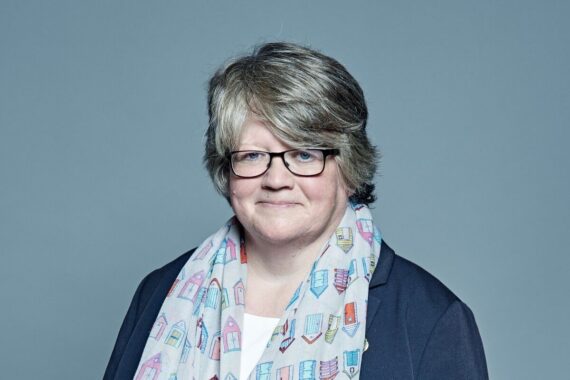New health secretary Dr Thérèse Coffey’s office has ordered her staff to ‘be positive’ and banned the use of ‘jargon’ and the Oxford comma, according to reports.
It comes amid the ongoing crisis in the NHS, with a new survey this month finding that almost three-quarters (73%) of patients are concerned about the pressure GP practices are under.
The Financial Times (FT) today reported that instructions titled ‘New secretary of state ways of working preferences’ were published on the Department of Health and Social Care’s (DHSC) intranet.
An email, seen by the FT and allegedly sent to hundreds of Government health staff last Thursday, showed the instructions were also forwarded to UK Health Security Agency (UKHSA) staff.
Dr Coffey’s office requested that employees ‘be precise’ and ‘be positive’.
It added: ‘If we have done something good, let us say so and avoid double negatives.’
Staff were also told not to use ‘Oxford commas’ and ‘jargon’.
One recipient told the FT that the email was ‘super patronising’, adding that ‘the idea that we have to frame issues positively indicates a person who doesn’t want to deal with problems, so that’s not encouraging.’
A DHSC spokesperson told Pulse that it is not unusual for ministerial teams to set out ways of working for staff when new ministers were appointed.
However, health officials said guidance was not usually ‘so prescriptive’, according to the FT.
Dr Coffey was appointed as deputy Prime Minister and health secretary by new Prime Minister Liz Truss last week.
In her first interview, Dr Coffey indicated she does not yet have a plan for how to boost GP appointment access, something Ms Truss named as a priority in her first speech as PM.

















‘The main difference between Oxford comma and comma is that an Oxford comma refers to a comma that usually comes before the final conjunction of a sentence, while a regular comma is a punctuation mark that depicts the divisions in a particular sentence.’
Had to look it up – still not bovvered!
Post-pandemic, and prior still, the workforce from junior doctor to nursing home assistant to hospital porter to GP nurse knows exactly what is cover-up, corruption and collusion. The biggest sickness this country has lies in the hidden agenda of it’s institutes. The narcissist that sits behind impervious walls, safe from the gutter of reality.
Therein is the real cancer.
This whole gimmick is going to be whistleblowed at an astronomical scale. Get a front seat. And hyphen. Or candy floss covered SOP bullet point to suck on.
https://www.aa.com.tr/en/europe/french-health-professionals-strike-against-staff-shortage/2607785
https://peoplesdispatch.org/2022/03/04/enough-of-creeping-privatization-of-health-care-say-striking-italian-doctors/
It’s infectious. Buckle up. Or unlock the buckle. They’re all covering up the sell of the the impending black hole.
The advice about the oxford comma had nothing to do with her grammatical kinks. It was intended to bury the story about her being asked to leave Oxford Uni for academic underperformance. Prior to the memo the Oxford Uni story was trending in the media, post-memo it disappeared. It was the same trick that Boris used when he said he like building models of buses out of wine crates. In that example the media hoo-hah buried the story about the lies printed on the side of the Brexit-Bus (how many millions was Brexit going to save us?). Now she just needs to find a way to bury the stories about the cigar smoking, obesity, and NHS bed shortages. Builds model beds out of cigar cases and cake-boxes?